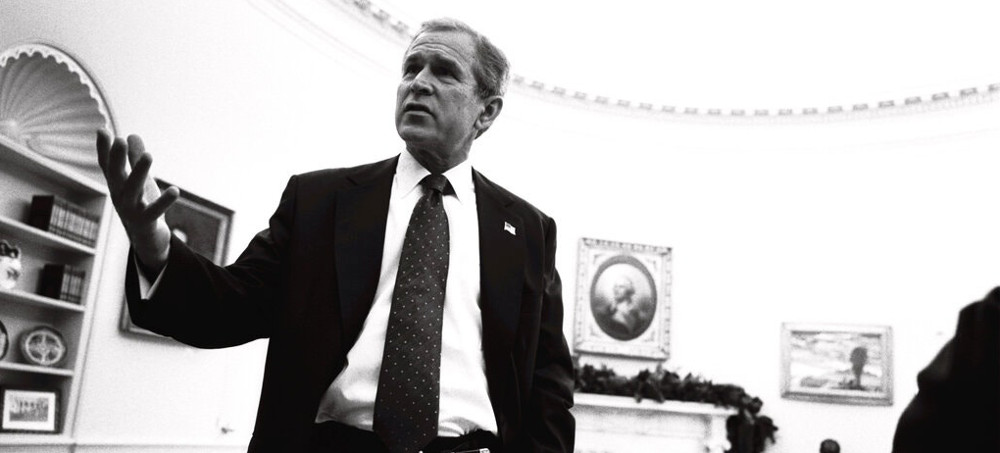George W. Bush 2021, Meet George W. Bush 2001
Jamelle Bouie The New York Times Former president George W. Bush. (photo: Christopher Morris/VII)
Former president George W. Bush. (photo: Christopher Morris/VII) George W. Bush 2021, Meet George W. Bush 2001
Jamelle Bouie The New York TimesOr, as the journalist Spencer Ackerman writes in “Reign of Terror: How the 9/11 Era Destabilized America and Produced Trump,” “A war that never defined its enemy became an opportunity for the so-called MAGA coalition of white Americans to merge their grievances in an atmosphere of righteous emergency.” That impulse, he continues, “unlocked a panoply of authoritarian possibilities that extended far beyond the War on Terror, from stealing children to inciting a violent mob that attempted to overturn a presidential election.”
The “war on terror” eroded the institutions of American democracy and fed our most reactionary impulses. It set the stage for a new political movement with an old idea: that some Americans belong and some don’t; that some are “real” and some are not; that the people who are entitled to rule are a narrow, exclusive group.
